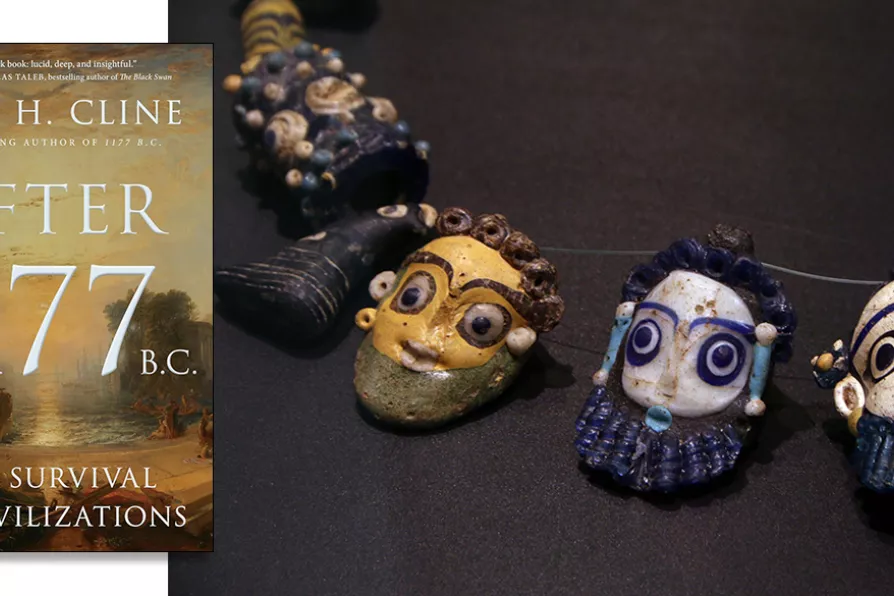BRENT CUTLER recommends a sober examination of the real risks and true merits of nuclear energy, and an exposure of the capitalist system as an obstacle to human betterment

 SURVIVORS: Phoenician glass necklace from Olbia, 4th century BC
[Giovanni Dall'Orto/CC]
SURVIVORS: Phoenician glass necklace from Olbia, 4th century BC
[Giovanni Dall'Orto/CC]
After 1177 BC The Survival of Civilizations
Eric H Cline
Princeton, £28
IN 1177 BC civilisation as we know it crumbled. In what is known as the Late Bronze Age collapse, the Egyptians, Assyrians, Babylonians and Cypriots all suffered disaster and lay in ruins.
Trade stopped, and written records disappear. A series of catastrophes ensued which included the destruction of cities, mass migration and climate change. Ultimately the Minoans and the Hittites vanished.

IAN SINCLAIR recommends an important and timely book for climate politics right now and in the future

SETH SANDRONSKY savours a personal account of the life and thought of the great Italian revolutionary

That Scotland was an active participant and beneficiary of colonialism and slavery is not a question of blame games and guilt peddling, but a crucial fact assessing the class nature of the questions of devolution and independence, writes VINCE MILLS











